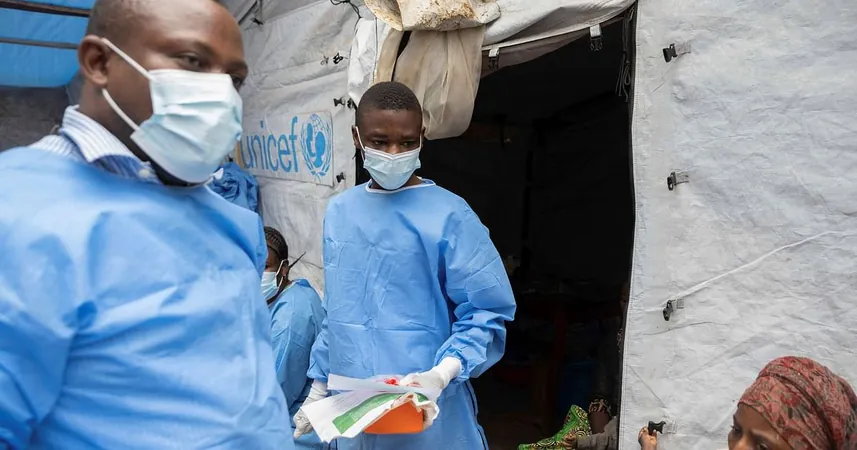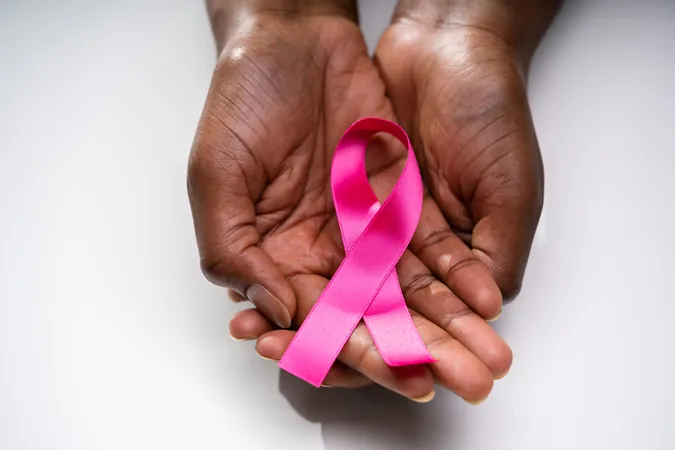
Mpox: African Scientists at the Forefront of Global Health Protection
2024-09-21
Introduction
A new variant of the monkeypox virus, known as mpox, has been causing alarm as it spreads across central Africa, instigating a global health emergency. However, this situation reflects a larger picture where climate change, urbanization, deforestation, and intensive animal farming are significantly amplifying the emergence of infectious diseases. This underscores the urgent need for early detection and effective response strategies championed by an increasing number of local experts in the field.
Ibrahima Socé Fall and Local Expertise
Among these experts is Ibrahima Socé Fall, an infectious diseases epidemiologist from Senegal. He leads the World Health Organization’s neglected tropical diseases program and has dedicated over thirty years to training local medical personnel in managing and responding to outbreaks like malaria and other emergent diseases. “The best epidemiologists are in Africa right now because we have so many outbreaks and are building capacity to respond,” Fall asserts. Notably, the Democratic Republic of the Congo has made strides with public health laboratories in Kinshasa and Goma now capable of diagnosing Ebola and analyzing genetic data critical for identifying transmission chains domestically.
Marietjie Venter's Contributions
In South Africa, Marietjie Venter, a prominent virologist at the University of the Witwatersrand, has been instrumental in establishing infectious disease surveillance networks that enhance both local and global awareness of resurgent viral threats. Her work has prioritized the development of diagnostics and vaccines on the continent, utilizing genomic-based techniques to expedite disease detection, allowing scientists to identify 30 pathogens or more from a single sample.
Venter's Perspective on Local Solutions
Venter emphasizes the importance of local solutions for emergent diseases. “At the moment, mpox is interesting for the world, but many other diseases here don’t receive the attention they deserve,” she notes. Africa finds itself at the vulnerable edge of 21st-century health hazards, with global warming contributing to a rise in vector-borne diseases such as Zika, dengue, and Rift Valley fever.
Shabir Madhi's Innovations
Shabir Madhi, a pediatrician and vaccinologist also at the University of the Witwatersrand, is working on innovative vaccination strategies to combat antibiotic-resistant infections. He highlights a cultural shift as international appreciation grows for the unique skills African researchers bring to the table, which is facilitated by an increasing focus from donors and philanthropic organizations on supporting indigenous research initiatives.
Lessons from the COVID-19 Pandemic
Raymond Hamoonga, a veterinarian and epidemiologist from the Zambia National Public Health Institute, points to lessons learned from the COVID-19 pandemic. The crisis exposed existing inequalities in global health, revealing how ingenious African medical teams have been in devising innovative strategies to deliver care amidst resource constraints. Hamoonga believes the African context offers a fertile ground for research, despite the potential financial drawbacks.
Helen Rees on Vaccine Production
Helen Rees, an esteemed medical doctor and scientist, is at the forefront of advocating for local vaccine production capacities in Africa to counteract endemic microbial threats. She notes a significant shift in perspective following the pandemic, with authorities now recognizing the critical need for accessible vaccines, mitigating the risk of reliance on wealthier nations.
Call for Enhanced Research Infrastructure
The urgency for bolstering research infrastructure across Africa has never been more critical. "We can’t keep placing demands on low-resource countries without genuinely enhancing their capacities," Rees argues.
Jacqueline Weyer's Vision for Global Cooperation
Jacqueline Weyer heads the zoonotic and parasitic unit at South Africa's National Institute of Communicable Diseases, focusing on animal-borne viruses like Crimean-Congo hemorrhagic fever. She stresses the necessity of global cooperation in virology and highlights the renewed interest in researching pathogens capable of causing pandemics. “Some of the world's most formidable diseases originate from Africa,” Weyer says, calling for a paradigm shift in how foreign entities engage with the continent. More investment and support for African scientists and research institutes are essential, suggesting that simply extracting knowledge without building lasting capacities is no longer an option.
Conclusion
In summary, African experts are leading the charge against emerging health threats, not only for their communities but for the world. As the landscape of infectious diseases becomes increasingly complex, proactive collaboration and investment in local research are crucial for global health security.


 Brasil (PT)
Brasil (PT)
 Canada (EN)
Canada (EN)
 Chile (ES)
Chile (ES)
 España (ES)
España (ES)
 France (FR)
France (FR)
 Hong Kong (EN)
Hong Kong (EN)
 Italia (IT)
Italia (IT)
 日本 (JA)
日本 (JA)
 Magyarország (HU)
Magyarország (HU)
 Norge (NO)
Norge (NO)
 Polska (PL)
Polska (PL)
 Schweiz (DE)
Schweiz (DE)
 Singapore (EN)
Singapore (EN)
 Sverige (SV)
Sverige (SV)
 Suomi (FI)
Suomi (FI)
 Türkiye (TR)
Türkiye (TR)